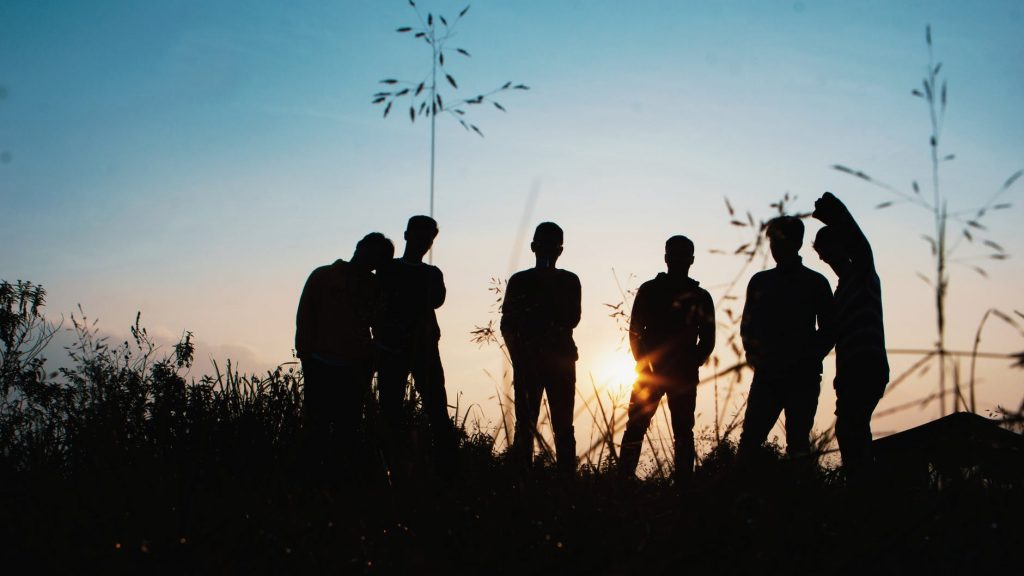Young advocates, mainstream media, and social media platforms are some of the mediums that can be used to amplify messages and call to action in tackling barriers related to sexual and reproductive health in children, young women and girls.
In a brainstorming virtual session dubbed, ‘Targeted solutions and a call to action in the advancement of Sexual and Reproductive Health and Rights (SRHR) agenda’, various movement-led organizations discussed long-term solutions in ensuring girls and women access SRHR products and services.
Top on the agenda was the emerging threats on COVID- 19 on the sexual and reproductive health of teenage girls in Kenya. Since the pandemic hit, there has been an influx of teenage pregnancies, with an estimated 20,828 girls aged between 10 and 14 years becoming mothers while over 24,000 either pregnant or first-time mothers at the ages of 15-19 years.
According to the National Council for Population and Development (NCPD), adolescent girls who give birth have a much higher risk of dying from complications of pregnancy and childbirth than women in their 20s and 30s. Teenage pregnancy is associated with poor health outcomes, including maternal deaths and injuries.
READ
Despite the government’s effort to delay teenage pregnancy and childbearing, statistics show that progress has been insufficient.
NCPD report further states that there is a need to establish a high quality, comprehensive, youth-friendly reproductive health services that address the diverse needs of adolescents and youth, including those living with HIV, disability, and the hard to reach.
United Nations Population Fund (UNFPA)-Kenya SRHR/Maternal Health Program Specialist Dr. Dan Okoro said over 200 million young women cannot access family planning, but the organisation has managed to reach out to 20 million women.
Recently, UNFPA launched a global response appeal for US$ 67.5 million to respond to the sexual and reproductive health needs of women and girls for successive two months, as countries shift focus to containing coronavirus. With the funding, UNFPA would prioritize supporting countries with weak public health and social support systems.
“Globally, 1 in 3 women are affected by Gender-Based Violence (GBV) while 300 million young girls are affected by Female Genital Mutilation (FGM). There is a need for collaborative efforts between the government and Community-Based Organisations (CBOs) to aim towards a lower prevalence of any form of violence among young women in Kenya,” said Dr. Okoro.
“UNFPA stands to achieve three transformative results; zero maternal deaths, GBV and harmful practices including child marriages and access to family planning,” added Okoro.
One of the participants, Managing Partner at Leteipan & Associates Advocates Ms. Sofia Leteipan cited the need to amply voices on the Reproductive Healthcare Bill spearheaded by Nakuru County Senator Susan Kihika, through galvanizing the mainstream media and public participation in a bid to create a more enabling legal framework for all.
“Training on the legal and policy framework that supports adolescents’ access to sexual and reproductive health rights is essential in enhancing our capacity to engage in advocacy on the ground,” said Advocate Leteipan.
Global Fund for Women SRHR Program Director Erin Williams stressed the need to reach out to grassroots women-led organizations through the provision of critical funding that supports them access gender justice.
“We recently launched our strategic plan and we are now looking at doubling down to a movement-led approach through local movement to shift resources to grassroots feminist organisations. COVID-19 pandemic has not only shown us that we have so many opportunities to build an even stronger community but it has also shown us that we can do this if we collaborate,” said Williams.
Graça Machel Trust Interim Chief Executive Officer Dr. Shungu Gwarinda reiterated the need to include youth advocate initiatives to provide solutions and address SRHR challenges through Expanding Equality initiative aimed at advancing equality for present and future generations in Africa.
“We work with women entrepreneurs to curate solutions critical for Sexual Reproductive Health Rights such as the ‘I AM Initiative’ where we provide funding to scale up the businesses and also offer training on businesses pitch readiness with our partners UNFPA, Global Fund For Women and NAILAB,” said Dr. Shungu.
Way forward?
The government must endorse a multi-sectoral approach through the involvement of Non-Governmental and Community Based Organisations (CBOs), faith-based organisations and the media working with the youth to address the sexual and reproductive health needs of adolescents.
There is a need to push policies for the implementation of the Reproductive Health Bill that challenges counties to ‘undertake training and sensitisation programmes on reproductive health and the age and development appropriate interventions available to various age groups and categories of persons within the respective county’.
‘Targeted solutions and a call to action in the advancement of Sexual and Reproductive Health and Rights (SRHR) agenda’ is the fifth fortnightly virtual stakeholder webinar that highlighted the spotlight impact for amplifying voices for change agents to tackle barriers hindering the accelerating SRHR.
Organised by New Faces New Voices Kenya, the five-webinar-series brought together key players in government, advocacy groups, women rights organisations, entrepreneur support hubs, legal representatives, and experts in cross-cutting areas in a bid to a fuel-action campaign towards the achievement of sexual and reproductive and health rights agenda. The program is in partnership with United Nations Population Fund, Global Fund for Women and Graça Machel Trust.





1 Comment
Pingback: No Benefit in Lowering Age of Consent for Sex in Kenya- Lobby Groups